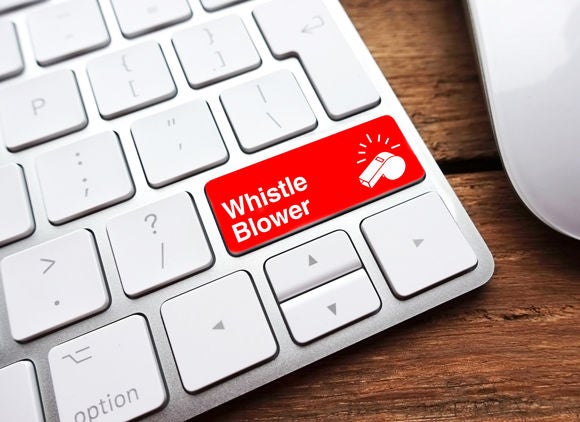Kupit conducts its business affairs inspired by ethical and legal principles. This integrity is required of everyone purchasing goods or services for the company, and generally anyone who represents Kupit in the commercial sector, whether in sales or procurement.
Today, Kupit deals with an increasing number of external organizations, including subsidiaries, affiliates, or business partners, with whom it often simultaneously maintains various types of business relationships.
Regardless of the type of organization one is dealing with and its relationship with Kupit, the following general rules must always be respected:
1) Avoid giving false impressions
No one should create misleading impressions or provide false or biased information. If someone feels they have been misunderstood, they must promptly correct the misunderstanding.
Honesty, based on clear communication, is an integral part of ethical behavior, and the trust that results from it is essential for a healthy and lasting relationship.
2) Relationships with suppliers
When selecting suppliers in competition with each other, all decision-making elements must be impartially evaluated, whether working within central offices, local branches, or any other company division, regardless of whether purchasing large or small quantities of products or requesting a single, minor repair or any other service.
Regardless of whether one has actual influence on supplier selection decisions, no one should exert any real or apparent pressure to obtain "favorable treatment" for a particular supplier. Even the appearance of such behavior can undermine Kupit’s procedural integrity.
To ensure fair selection, Kupit evaluates its suppliers based on competitiveness. Kupit's prices, information, and evaluations regarding suppliers are confidential.
Employees or former employees may not use such information outside the company without written authorization from management.
3) Competition
Kupit competes vigorously with its rivals. If it becomes necessary to change prices or service conditions, these changes must be specifically approved by the designated managerial lines. No modification to contractual conditions or service performance should be arbitrarily applied to a customer without prior authorization.
Kupit requires those representing it in marketing or customer service activities to compete effectively but fairly.
Denigration
It is Kupit's established policy to sell products and services based on their value and quality, without denigrating the competition, its products, or services. False or biased statements, even if only implied, are not permissible, nor should comparisons be made that may put a competitor in a bad light, except within the limits allowed by "comparative advertising" laws. The Legal Department can provide support on this issue.
Behavior contrary to these principles can only damage relationships of respect with customers and suppliers.
In short, it is important to emphasize the benefits of Kupit's products and services, ensuring that any comparisons made are fair and accurate.
4) Relationships with other organizations
Some companies have more than one type of relationship with Kupit; other companies may be competitors, suppliers, and end-users of Kupit products. Furthermore, Kupit maintains business relations with many other organizations that continue to emerge in our sector. These include leasing companies, software houses, banks, and other financial institutions, providers of goods or services, service and support companies, manufacturers, independent distributors, and others that either compete with Kupit, buy from Kupit, or sell to Kupit. In each case, it is important to understand the specific type of relationship that exists with each company.
Business contacts with competitors
Since many companies have various relationships with Kupit, it is important to recognize cases where a supplier or customer is also a competitor. Relationships with such companies require additional caution. It is inevitable that Kupit employees and competitors will meet, speak, and attend the same business meetings. Many types of contact are perfectly acceptable when following established procedures.
These include selling to companies in the same sector; purchasing from such companies; participating in joint bids previously approved; defining product technical standards; participating in industry organizations (such as the Oil Union); and joining study commissions, foundations, and trade associations. However, even these contacts require caution. Strict adherence to company procedures eliminates the risk of misconduct, but in case of doubt, employees should consult their manager.
Prohibitions
When in contact with representatives of competitors, it is absolutely necessary to avoid discussing issues such as pricing policies, contract conditions, costs, inventories, product announcement plans, market research, promotional campaigns, production plans, and generally any type of "sensitive" information that could lead to accusations of anti-competitive collusion, as well as any proprietary or confidential Kupit information.
Any collaboration or discussion on these topics with competitors may be illegal. If a competitor raises any of these issues, it is essential to immediately communicate Kupit’s position, stop the conversation, state that such topics will not be discussed, and, if necessary, leave the meeting. Ultimately, each employee must avoid involving themselves or Kupit in any illegal activities with competitors and limit themselves to what is clearly lawful. Additionally, any situation related to these topics should be reported immediately to a supervisor.
5) Acquisition and use of third-party information
In the course of their work, employees may become aware of information about many other organizations, including competitors. This, in itself, is not wrong or unethical. Kupit legally gathers such information, for example, when granting credit to a customer or assessing a supplier. Additionally, Kupit collects information about competitors from various legitimate public sources and uses it to compare its own products, services, and marketing strategies with those of the competition. Gathering this information is necessary in the competitive system in which Kupit operates.
However, there are limits to how this information, particularly concerning competitors, is acquired and used. No company should use illegal methods to obtain trade secrets or other confidential information from competitors. Illegal practices such as industrial espionage, trespassing, theft, bribery, or wiretapping are obviously prohibited. Similarly, it is illegal to hire a competitor's employee solely to obtain confidential information. Soliciting confidential information from a competitor’s employees, suppliers, or customers is also illegal.
Kupit will not tolerate any form of information gathering carried out by dubious means.
6) Third-party proprietary information
Other organizations, like Kupit, have information and intellectual property they wish to protect. This is also true for individuals. Like Kupit, these entities are sometimes willing to disclose their confidential information. If a Kupit employee receives confidential information from a third party, they must proceed with the utmost caution to avoid accusations of improper use or appropriation of such information.
Before receiving such information, employees should ensure Kupit has a formal agreement with the third party governing the use of the information.
4. Use of Trademarks
Kupit and many other companies use trademarks (words, names, symbols, or other identifiers) to identify and differentiate their products.
For example, the capital letters "Q8" and the logo represented by the 'sails' are registered trademarks. Different classifications may be applied to trademarks in other countries.
It is important that Kupit’s and other companies’ trademarks are recognized as such and used correctly worldwide. In particular, one must always ensure that the trademark is spelled correctly and graphically reproduced as usually represented by the trademark owner.
Always avoid using the trademark as a generic name; rather, try to use it as an adjective. In any publication, it should be clearly indicated, the first time a name or symbol is used, whether it is a trademark of Kupit or another company. Again, it is crucial to respect internal procedures to avoid any risk of improper conduct, and for any residual doubt about the correct use of the trademark, one should consult their manager.
5. Gifts and Permissible or Improper Treats
The exchange of gifts between employees of different companies can range from widely distributed promotional items, which Kupit employees are allowed to give or accept, to improper gifts that are undoubtedly not permitted. Gifts include not only material goods but also services, promotional prizes, or discounts on personal purchases of goods and/or services.
Below are some general guidelines regarding the exchange of gifts.
Any exceptions to these general directives may be approved by the appropriate management lines, provided they are not illegal or illicit practices.
Business Entertainments
It is permissible to offer and accept normal business entertainments, such as offering lunches, as long as the related expenses remain within reasonable limits and are not practices prohibited by law or business customs. Furthermore, it is often necessary for a supplier, including Kupit, to provide training or executive briefings to clients. In this case, it is permissible to accept or provide some services related to this type of activity: transport by airplanes, ferries, or trains to and from company locations, accommodations, and meals at company locations are generally acceptable.
Gifts - Acceptance
No employee, either directly or through family members, may solicit or accept money. Other gifts from a supplier or customer may not be solicited or accepted if they could influence or even merely give the impression of influencing the normal course of Kupit’s business.
However, unless specific Kupit directives state otherwise, it is permissible to accept promotional prizes and/or discounts offered by transportation, oil, hotel, car rental companies, and restaurants, provided that the right to such prizes and/or discounts arises from personal participation in promotional programs offered indiscriminately to all users. It is also permissible to accept gifts of modest value (e.g., samples of new products distributed for advertising purposes), as long as they are gifts traditionally offered to all who have the same type of relationship with that customer or supplier. In case of doubt, it is advisable to consult with one’s direct supervisor.
If a Kupit employee is offered money or a gift, receives it at home or at the office—outside the aforementioned conditions—they must immediately inform their supervisor. Steps will be taken to promptly return or appropriately handle what was received, and the supplier will be reminded of Kupit's gift policy.
Business Procurement
If authorized by Kupit, marketing personnel may provide customers with names of third-party suppliers; however, employees may not accept payment of any commission or fee of any kind from anyone other than Kupit for such activities.
Gifts - Offering
It is absolutely forbidden to directly or indirectly offer money or gifts to executives, officials, or employees of suppliers, clients, public administration entities, or other organizations.
However, it is permissible to offer gifts of modest or symbolic value (for example, promotional gadgets), in accordance with applicable laws and customs.
6. Relationships with Public Employees
Behaviors considered acceptable in normal business practice (for example, providing courses, transportation, meals, entertainment, or any other goods or services of appreciable value) can be absolutely unacceptable, if not in open violation of regulations, when directed toward public administration employees or officials acting on behalf of the public administration.
It is therefore essential that Kupit personnel are aware of and adhere to the laws and regulations governing relationships between public employees and clients or suppliers in the public administration, as well as related company procedures.
It is not permissible to offer money or gifts to executives, officials, or employees of the public administration, whether Italian or from other countries, if such offers may in any way appear related to business relations with Kupit.
Under Italian law, bribery of a public official, including foreign ones, is a criminal offense. Acts of bribery include illicit payments made directly by Italian companies or their employees, as well as illicit payments made through persons acting on behalf of such companies. Furthermore, the law also prohibits offering or accepting valuable items to obtain more favorable treatment in any relationship with the public administration.
It is lawful and possible to offer gifts to clients, provided they are appropriately approved by the manager, are of an appropriate nature, and have symbolic value, as long as this occurs in compliance with the law. However, such gifts must not be interpreted in any way as a request for favors.
Additionally, legal and ethical restrictions may exist regarding the hiring of current or former public employees or members of their families by Kupit. It is essential to rigorously adhere to company procedures, and in case of doubt, to consult with Human Resources and Legal Management before initiating any preliminary discussions with such categories of individuals.
7. Conferences at Kupit Locations
Election campaigns are not permitted in Kupit locations, except those related to company labor representation or otherwise provided by law.
8. Compliance with Laws
All Kupit employees must adhere to the laws and regulations applicable to the production and/or distribution of fuels and related non-oil activities, whether issued by the Italian State or originating from the European Community. During their work activities, each Kupit employee may encounter legal issues, especially in the areas described below. Anyone with questions regarding laws or regulations may contact Legal Management.
Environment
Kupit applies the highest environmental protection standards and adheres to all prescribed environmental laws. In cases not covered by specific environmental protection laws, Kupit establishes and applies rigorous internal standards.
Every employee involved in production processes that may have environmental repercussions must perform their work with the utmost conscientiousness, monitoring and, if necessary, reporting any discharges and accidental emissions of harmful materials, and handling hazardous waste with due care. Every Kupit employee is responsible for applying environmental protection regulations.
It is the duty of all employees to protect the environment. Anyone who becomes aware of violations of environmental protection regulations, or actions aimed at concealing such violations, must immediately inform their superior and the competent function indicated by company procedures.
Kupit has prepared an "environmental handbook," which will be updated as necessary and should also be followed for relationships between Kupit and the administrations responsible for the protection of the national environmental heritage.
Competition
In most industrialized countries, including Italy, there are competition laws. These laws, often referred to as "antitrust laws," monopoly laws, commercial ethics, or free competition laws, aim to prevent any interference with the proper functioning of a competitive market system. While the primary function of such laws is economic, they are often considered to extend beyond consumer protection to safeguard other significant values in our society, including individual freedom.
According to these laws, companies cannot enter into agreements, even informal ones, with other companies to alter competition in the market. Examples of such behavior include competitors agreeing on the prices of their products, agreements between competitors to divide the market or control production, and agreements between a company and its suppliers to prevent them from selling to competitors.
A company can violate competition laws even without colluding with other companies. For example, it may take actions that restrict free competition. If the leaders of an organization decide to undertake such actions, they may illegally monopolize or attempt to monopolize their sector or abuse their dominant position.
Kupit’s policy is to respect competition laws. Employees can contribute to this policy by following the principles of fair business contained in this document and in related procedures, being sensitive to when competition law issues may arise, and discussing these issues with Legal Management.
Contracts with the Public Administration
One objective of legislation concerning contracts with the public administration is to help public clients, such as the state, local authorities, public entities, and all parties operating on behalf of public entities, obtain necessary products and services at a fair price. Since the regulations in this area are complex and varied, we must be cautious in conducting activities that involve entering into contracts with the public sector and comply with current regulations. In the execution of activities related to contracts with the public administration, employees must avoid unduly influencing client decisions to obtain confidential information.
The following cases represent some examples of specific issues to which Kupit employees must be sensitive and attentive. Laws regarding contracts with the public administration generally require the conduct of public tenders and, only under particular circumstances, negotiation with a limited number of suppliers. A letter of invitation may be obtained in advance only if other competitors have also received it. Invitations should not be prepared on behalf of public clients, even if requested by the client, nor should anonymous documents be submitted or public clients encouraged to sign a contract before the tender has been awarded to Kupit. Business opportunities or employment possibilities that could benefit a public employee should never be discussed, and gifts should never be offered to public employees during the procurement process for the public client. If a consultant is to be used in connection with participation in a public tender, they should not be appointed without first obtaining authorization from the manager. It must be ensured that the guidelines for conduct in business set forth in this document are applied in relations with the consultant. Furthermore, a consultant should not be appointed when conflicts of interest might arise.
In delivering services to public entities, we must comply with laws and regulations regarding contracts with the public administration as well as company procedures. Additionally, employees must immediately report to their manager or the Compliance Officer any actual or potential violations of laws or regulations governing the public sector. Kupit will not tolerate any form of retaliation, discrimination, or penalization, and will ensure the confidentiality of the identity of any employee who properly reports such violations.
Customs
A complex customs regulation, which must be strictly adhered to, remains in force to regulate trade within the EU and to or from non-EU countries. Kupit strictly complies with all customs regulations and considers it essential for the proper conduct of its business that its employees also comply with legal requirements in this regard. Since generally only activities involving international trade are subject to customs regulations, only services operating in such sectors may be affected; it is recommended that, in case of doubt, a request for advice be directed to the Tax and Customs Department.
Construction and Urban Planning
Kupit’s commitment to environmental respect is also reflected in its adherence to existing regulations regarding construction and urban planning. No construction initiative will be undertaken without first acquiring all necessary permits, licenses, concessions, or authorizations from the public administration. Kupit's technical services will operate in compliance with laws, regulations, and general and local customs, even if this may impede the rapid completion of business.
Exports
Kupit operates in an industrial sector that may involve high-level technological knowledge.
Kupit’s activities—whether related to products, any technical data concerning design, production, or use of such products or services—are therefore subject to all laws regulating exports, and appropriate governmental authorization must be obtained before exporting products and/or technical data.
Employees must be aware that their activities may have implications for exports. Export laws apply to all international transactions (including intra-group transactions and transactions in which the recipients are not of Italian nationality), transactions with clients, suppliers, business partners, alliances, or agents.
Export provisions govern much more than simple shipments.
Also, transfers of technological knowledge and applications of such knowledge, via the Internet or Intranet, e-business and e-services activities, international travel with products or technology, supply of technical specifications and other specific services to suppliers for foreign purchases, and application of personal knowledge abroad are all activities subject to export regulations.
Tax and Finance
It is in Kupit’s interest, as well as its company policy, to comply with all tax, fiscal, and financial regulations; this applies both to its employees and to individuals, including external parties, providing fixed or occasional consultancy in this area.
Tax and financial matters present strong regulatory complexity, as well as specific difficulties inherent to the petroleum sector.
Since violations of tax and financial regulations (especially when they may harm third-party interests) can result in severe penalties—both administrative and criminal—Kupit expects its employees to strictly adhere to current laws and to consult the Tax and Customs Department and Legal Management in cases of doubt or particular complexity.
Imports
Kupit is also an importer, and as such is subject to international trade laws regulating imports. Kupit employees involved in import-related activities must be aware of the obligations imposed by such laws, non-compliance with which can result in fines, civil and criminal penalties, and/or loss of import benefits. Any inquiries regarding import regulations should be directed to their manager.
Workplace Safety and Hygiene
Kupit considers the individuals who work for it as its greatest asset and the true guarantee of its industrial and commercial success.
Kupit complies with all safety and hygiene regulations in workplaces, facilities, and locations where its employees operate.
As much as possible, Kupit operates to ensure that even the operators of fuel sales points, its institutional partners, commit to this end.








